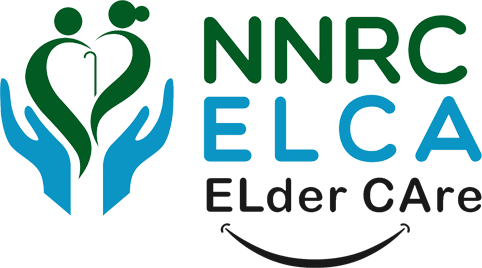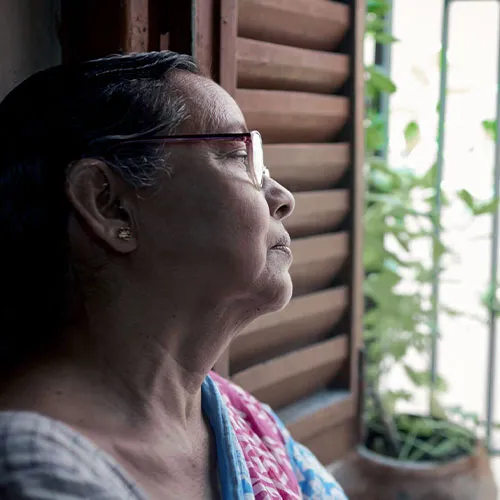Challenges For Elderly Living Alone In India And How Assisted Living Centers Helps
Health Challenges
Elderly people living alone in India frequently suffer from chronic conditions like diabetes, hypertension, and heart disease. For elderly people who live alone, managing and caring for these ailments can be challenging. Access to healthcare services, such as routine check-ups, medication management, and specialist treatment for chronic conditions, is made possible by assisted living facilities. By doing this, you can make sure that seniors get the care they require to manage their diseases and keep themselves healthy.
Visit Our Website: https://elca.in/
Mental Health Issues
In India, elderly people living alone frequently have mental health problems like anxiety and depression. These problems can be made worse by social isolation and loneliness, which can impair mental health. Assisted living care facilities offer social events and chances for seniors to interact with others, which can lessen feelings of isolation and enhance mental health. To assist seniors in managing their mental health difficulties, centres also offer access to mental health treatments, such as counselling and therapy.
Medication Management
Elderly people in India who live alone can struggle to manage their medications, especially if they have several chronic ailments. Elderly residents are given the proper drugs at the appropriate times thanks to the medication management services offered by assisted living facilities. In addition to ensuring that seniors receive the full advantages of their drugs, this can assist reduce prescription errors.
Social Isolation
Living alone puts seniors at risk for social isolation, which can be detrimental to their physical and mental well-being. Social isolation can result in mental health problems such as depression, anxiety, and other problems, in addition to physical problems including high blood pressure and heart disease. Assisted living facilities provide a welcoming, social environment that promotes conversation and sociability. Residents have access to a range of social activities and events, and staff members work to foster a sense of community and belonging among residents.
Safety Concerns
Older individuals who reside alone may be more vulnerable to security risks such as accidents, crimes, or falls. Older individuals who live alone could have trouble contacting emergency services or might not know who to turn to in a crisis. A safe and secure environment is provided to residents of assisted living facilities, which have professionals on call around-the-clock to assist in an emergency. Several assisted living care facilities also offer safety features like grab bars and emergency call systems to help decrease falls and accidents.
Transportation Challenges
It may be difficult for elderly persons who live alone to get to and from appointments, run errands, or participate in social events. Transportation problems may make it more difficult for the elderly to access healthcare services and other essential resources. There are frequent shuttle services available for assisted living facility residents to use for doctor visits and community gatherings. Moreover, staff members can assist with any travel needs.
Language and Cultural Barriers
Elderly persons living alone who are not native speakers of the local language or who come from a different cultural background may find it challenging to access healthcare services or communicate with their neighbours. Seniors may experience social isolation as a result of linguistic and cultural barriers that make it difficult for them to access resources and services. The staff at assisted living homes can receive training in linguistic support and cultural awareness, ensuring that senior citizens from all backgrounds receive the help and care they need.
Ageism and Discrimination
Elderly adults who live alone may also encounter ageism and prejudice, which may limit their options and access to resources. Ageism can manifest itself in many different ways, including at work or in medical facilities. Assisted living facilities can speak out against ageism and discrimination, promote policies that support elders’ rights to equal opportunity, and provide education and training on these issues.
Assisted living facilities can be advantageous to elderly Indians who are living alone in a number of ways. These facilities offer a warm and secure environment with access to social activities, transportation, and technical resources. Moreover, facilities for assisted living can help people deal with problems like ageism, financial constraints, safety concerns, and social isolation.
In assisted living facilities, elderly individuals have a number of options available to them, with varied levels of assistance and care based on their needs. While some facilities offer more intensive care options for those who require assistance with daily activities, others offer independent living options for people who only require a little help.
Moreover, assisted living facilities benefit family members and carers. Family members will not only have more time to devote to their own requirements and commitments, but also feel more at peace knowing that their loved ones are receiving the care and help they need. Caregivers might benefit from the respite that assisted living facilities provide them by taking a break from their caregiving responsibilities and refuelling.
In conclusion, assisted living facilities offer a solution to the issues Indian seniors who live alone must deal with. These centres provide a safe and uplifting environment with access to social activities, digital resources, healthcare services, and transportation. Assisted living facilities provide seniors with a range of options based on their needs and can help with issues including social isolation, safety worries, language and cultural barriers, and ageism. By meeting their requirements, we can make sure that seniors in assisted living facilities have access to the services and care they need to live long, healthy lives.



